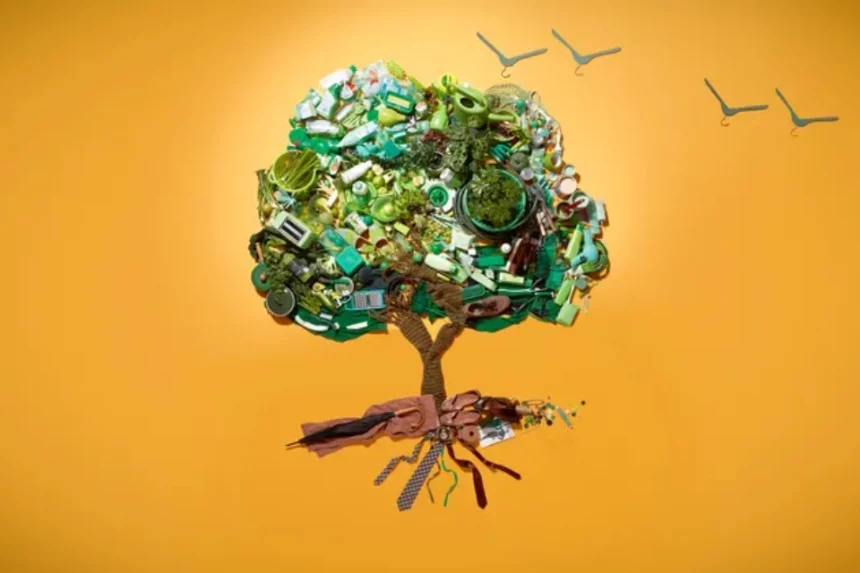In today’s world, the need for sustainable living is greater than ever before. With global warming, climate change, and the depletion of natural resources, it’s time for us to take responsibility and make changes to our lifestyles. One of the most effective ways to do this is by adopting eco-friendly living practices. By making simple changes in our homes, we can make a significant impact on the environment and create a greener future for ourselves and generations to come. In this article, we’ll explore some easy and practical tips for sustainable living that you can start implementing today. From reducing your energy consumption and water usage to using eco-friendly products and recycling, we’ll cover everything you need to know to make your home more environmentally friendly. So, let’s get started on the journey towards a sustainable and green lifestyle!
What is eco-friendly living?
Eco-friendly living is a lifestyle that aims to reduce the negative impact of human activities on the environment. It involves making conscious decisions to minimize waste, reduce energy consumption, and use sustainable resources. The goal of eco-friendly living is to create a sustainable environment that can be maintained for future generations. It involves choosing products and practices that have a low impact on the environment, such as renewable energy sources, reusable products, and reducing waste.
The importance of eco-friendly living
The importance of eco-friendly living cannot be overstated. Our current lifestyle and habits are having a negative impact on the environment, and we need to take action to reverse this trend. The depletion of natural resources, pollution of the air and water, and the destruction of habitats and ecosystems are just some of the consequences of our unsustainable lifestyle. By practicing eco-friendly living, we can reduce our carbon footprint and make a positive impact on the environment.
Environmental impact of our current lifestyles
The environmental impact of our current lifestyles is significant. The use of fossil fuels for transportation and energy production is a major contributor to greenhouse gas emissions, which are responsible for global warming and climate change. The production and disposal of plastic products are also major contributors to environmental pollution. Additionally, the depletion of natural resources, such as water and forests, is a growing concern. These negative impacts have consequences for the environment and our health.
- Advertisement -
Benefits of eco-friendly living
There are many benefits of eco-friendly living. One of the most significant benefits is the reduction of our carbon footprint, which helps to mitigate the effects of global warming and climate change. Additionally, eco-friendly living can lead to a healthier lifestyle. Choosing organic and locally grown food can reduce exposure to harmful chemicals, and using eco-friendly cleaning products can reduce exposure to toxins. Eco-friendly living can also save money in the long run, as energy-efficient appliances and products can reduce energy consumption and lower utility bills.
Easy ways to reduce energy consumption
Reducing energy consumption is one of the most effective ways to practice eco-friendly living. There are many easy ways to reduce energy consumption in your home. One way is to replace traditional light bulbs with LED bulbs, which use less energy and last longer. Another way is to unplug electronics when they are not in use, as they continue to use energy even when turned off. Additionally, using energy-efficient appliances, such as refrigerators and washing machines, can significantly reduce energy consumption.
Simple tips for reducing water usage
Reducing water usage is another important aspect of eco-friendly living. There are many simple tips for reducing water usage in your home. One way is to fix leaks in faucets and toilets, which can waste a significant amount of water. Another way is to take shorter showers and install low-flow showerheads. Additionally, using a dishwasher instead of hand-washing dishes can save water, as dishwashers use less water than hand-washing.
Eco-friendly products for sustainable living
Using eco-friendly products is another important aspect of eco-friendly living. There are many eco-friendly products available that can help reduce waste and pollution. One example is reusable bags, which can replace single-use plastic bags. Another example is organic and biodegradable cleaning products, which can reduce exposure to harmful chemicals. Additionally, using bamboo or recycled paper products can reduce the use of wood and paper.
The importance of recycling and waste reduction
Recycling and waste reduction are essential components of eco-friendly living. Recycling helps to reduce the amount of waste that ends up in landfills and reduces the need for new resources. There are many items that can be recycled, including paper, plastic, glass, and metal. Additionally, reducing waste by using reusable products and composting can also have a significant impact on the environment.
Tips for sustainable transportation
Transportation is another area where we can make a significant impact on the environment. Choosing sustainable transportation options, such as walking, biking, or taking public transportation, can significantly reduce carbon emissions. Additionally, choosing fuel-efficient vehicles and carpooling can also help reduce the negative impact of transportation on the environment.
Conclusion: Taking action for a sustainable future
In conclusion, eco-friendly living is an essential part of creating a sustainable future. By adopting eco-friendly practices in our homes, we can reduce our carbon footprint, save money, and make a positive impact on the environment. From reducing energy consumption and water usage to using eco-friendly products and recycling, there are many easy and practical ways to live a sustainable lifestyle. It’s time for us to take responsibility and make changes to our lifestyles to create a greener future for ourselves and generations to come. Let’s take action today!


